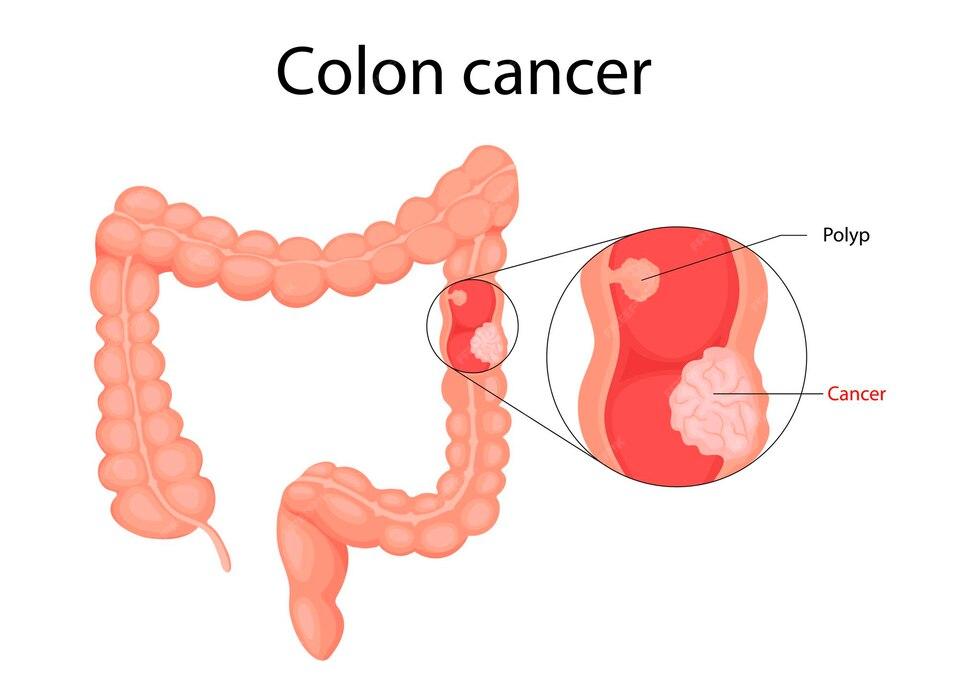Introduction
Colon cancer, also known as colorectal cancer, is one of the most common cancers worldwide. It starts in the colon or rectum and often develops from polyps, small growths in the colon lining. While the topic may seem daunting, understanding the basics of colon cancer can empower individuals to take proactive steps toward prevention and early detection. Let’s explore the “9 Frequently Asked Questions About Colon Cancer Answered by the Best Colorectal Surgeon in Surat” and discover key insights that everyone should know.
1. What Are the Early Signs of Colon Cancer?
Early detection is critical when it comes to colon cancer. Some common signs include:
-
Persistent changes in bowel habits (diarrhea or constipation).
-
Blood in the stool or dark-colored stool.
-
Abdominal pain or cramping.
-
Unexplained weight loss.
-
A feeling that the bowel does not empty completely after a bowel movement.
It’s worth noting that early-stage colon cancer often has no symptoms. Regular screenings are essential to catch the disease before symptoms appear.
2. Who Is Most at Risk for Colon Cancer?
Certain factors increase the risk of colon cancer:
-
Age: Most cases occur in individuals aged 50 and older.
-
Family History: A history of colon cancer or polyps in the family raises risk.
-
Lifestyle Choices: Lack of physical activity, a low-fiber and high-fat diet, smoking, and heavy alcohol use contribute to higher risk.
-
Medical Conditions: Individuals with inflammatory bowel diseases like Crohn’s or ulcerative colitis are at higher risk.
If you fall into these categories, consult a gastroenterologist in Surat or your local specialist for personalized advice.
3. How Can Colon Cancer Be Prevented?
While some risk factors are unavoidable, others can be managed. Steps for prevention include:
-
Eating a balanced diet rich in fruits, vegetables, and whole grains.
-
Exercising regularly to maintain a healthy weight.
-
Avoiding tobacco products and limiting alcohol consumption.
-
Undergoing regular screenings, especially after age 50.
4. What Role Does Screening Play in Early Detection?
Screening is one of the most effective ways to detect colon cancer early. Common screening methods include:
-
Colonoscopy: This allows the doctor to examine the entire colon and remove polyps if found.
-
Fecal Occult Blood Test (FOBT): This detects hidden blood in stool samples.
-
CT Colonography: A non-invasive imaging test also called a virtual colonoscopy.
The frequency of screenings depends on your risk factors and age. Always consult your doctor to establish the best schedule.
5. What Are the Stages of Colon Cancer?
Colon cancer is classified into five stages, from 0 to 4:
-
Stage 0: Cancer is confined to the innermost layer of the colon.
-
Stage 1: Cancer has grown into the deeper layers but has not spread beyond the colon.
-
Stage 2: Cancer has spread to nearby tissues.
-
Stage 3: Cancer has reached nearby lymph nodes.
-
Stage 4: Cancer has spread to other organs, such as the liver or lungs.
Each stage requires a unique treatment approach. Early-stage cancers are easier to treat, emphasizing the importance of timely diagnosis.
6. What Are the Treatment Options for Colon Cancer?
The treatment plan depends on the stage of the cancer:
-
Surgery: This is the most common treatment, especially in early stages. It involves removing cancerous parts of the colon.
-
Chemotherapy: Used to destroy cancer cells and prevent them from spreading.
-
Radiation Therapy: Often used for rectal cancer to shrink tumors before surgery.
-
Targeted Therapy: Focuses on specific molecules involved in cancer growth.
7. What Is Life Like After Colon Cancer Treatment?
Life after treatment may involve adjustments, but many survivors lead healthy lives. Follow-up care typically includes regular check-ups and screenings to ensure cancer has not returned. Additionally, adopting a healthier lifestyle with proper diet and exercise can boost overall well-being.
8. What Are Common Myths About Colon Cancer?
Let’s debunk a few myths:
-
Myth: Only older adults get colon cancer.
-
Fact: While the risk increases with age, colon cancer can affect younger individuals.
-
-
Myth: A lack of symptoms means you’re safe.
-
Fact: Early colon cancer often has no symptoms, which is why screening is vital.
-
-
Myth: A high-fiber diet eliminates all risk.
-
Fact: While fiber helps reduce risk, it doesn’t eliminate it entirely.
-
9. How Can You Support a Loved One with Colon Cancer?
If someone close to you has colon cancer, offering emotional and practical support is invaluable. Here’s how you can help:
-
Be Present: Attend doctor appointments or treatment sessions for moral support.
-
Listen: Sometimes, just lending an ear can provide immense comfort.
-
Help with Daily Tasks: Offer to cook, clean, or run errands during treatment.
Supporting their mental health is equally important. Encourage open communication and remind them they’re not alone in their journey.
Final Thoughts
Colon cancer is a serious condition, but it is also preventable and treatable when detected early. Understanding the symptoms, risk factors, and importance of regular screenings can save lives. Consulting with experts, such as the best colorectal surgeons or gastroenterologists, ensures you receive accurate guidance and care.



